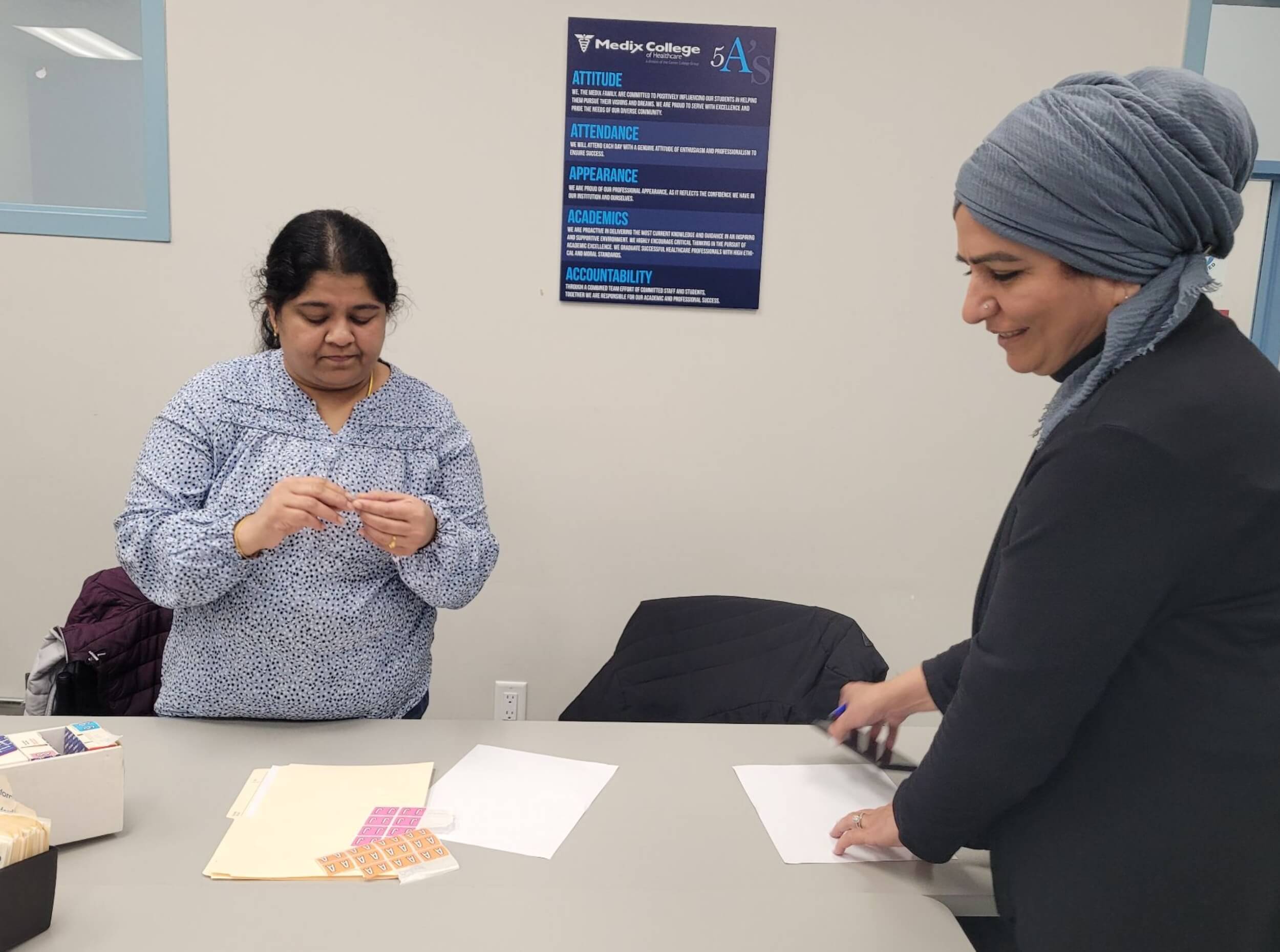Patient Data Protection Tips for Medical Office Administration Graduates
August 02, 2024
Keeping a patient confidential is the cornerstone of healthcare, representing the trust between patients and healthcare providers. It refers to a medical professional’s ethical and legal duty to protect patient information from unauthorized access. This principle is crucial because it fosters a safe environment where patients feel comfortable sharing personal health details, knowing their information will be handled with discretion and respect.
As a Medix College’s Medical Office Administration program graduate, you’ll enter a fast-paced, rewarding field where keeping each patient confidential is paramount. Keep reading to learn the value of patient confidentiality in healthcare, how to protect patient data in the role, and how our training program prepares you to adhere to healthcare ethics throughout your career.
Why It’s Important to Keep Each Patient Confidential
Understanding the importance of confidentiality is foundational for anyone interested in becoming a medical office assistant. Patient confidentiality ensures that sensitive health information is kept private, protecting patients from potential discrimination, embarrassment, or harm.
It upholds the integrity of the healthcare system, ensuring that patients trust their healthcare providers. Violating this trust can lead to legal consequences and damage your professional reputation. With this in mind, you might wonder how to keep each patient confidential after healthcare career training. Let’s discuss.
Secure Handling of Patient Records and Mindful Communication
One of the primary ways to maintain patient confidentiality is through the secure handling of patient records.
How do you handle confidential patient information? Whether dealing with electronic or paper records, always ensure they are stored securely. For electronic records, use strong, unique passwords and change them regularly. Two-factor authentication can add an extra layer of security, ensuring that only authorized personnel can access sensitive information.
Additionally, be mindful of where you discuss patient information. Avoid conversations about patient health in public or semi-public areas where unauthorized individuals might overhear. Always use private offices or designated areas to discuss patient details.

Accurate and Secure Record-Keeping
As part of your training at Medix College, you will learn health information management and patient data collection. This knowledge will be crucial in ensuring accurate and secure record-keeping.
For instance, accuracy and discretion are key when billing patient services to the Ministry of Health or directly to patients. Always double-check entries and ensure all data is handled according to privacy laws and regulations.
Effective Use of Technology
In today’s digital age, using technology effectively is vital for maintaining confidentiality in patient care. Medix College’s Medical Office Administrator program includes training in Microsoft Office applications, medical transcription, and creating and maintaining medical databases.
These skills will help you manage patient information efficiently and securely. Always ensure that your computer systems are updated with the latest security patches and that you use encrypted communication channels for sharing sensitive information.
Continuous Learning and Compliance
How do you ensure confidentiality compliance? Staying updated with the latest regulations and best practices in patient confidentiality is essential. Healthcare laws and standards are continually evolving, and as a Medical Office Administrator, you must keep abreast of these changes.
Attend workshops, read industry publications, and participate in professional development opportunities to ensure that your knowledge and skills remain current.

Patient confidentiality is critical to your role as a Medical Office Administrator. By understanding its importance and following best practices for secure record handling, mindful communication, accurate record-keeping, effective use of technology, and continuous learning, you can help maintain the trust fundamental to the healthcare profession.
Our healthcare college‘s comprehensive Medical Office Administrator program equips you with the skills and knowledge needed to excel in this vital area. It ensures you can positively impact patient’s lives while upholding the highest privacy and security standards.
Are you ready to start our medical office administration program?
Contact Medix College to learn more!
Frequently Asked Questions
Question: How do you handle confidential patient information?
Answer: Whether dealing with electronic or paper records, always ensure they are stored securely. For electronic records, use strong, unique passwords and change them regularly.
Question: How do you ensure confidentiality compliance?
Answer: Staying updated with the latest regulations and best practices in patient confidentiality is essential. Healthcare laws and standards are continually evolving, and as a Medical Office Administrator, you must keep abreast of these changes.




